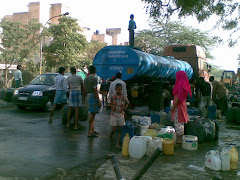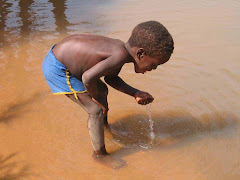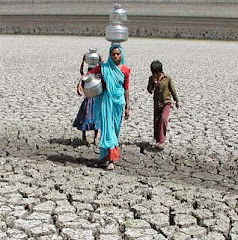The ongoing 15th annual United Nations Climate Change Conference (COP15) in Copenhagen, Denmark, is a failure for more reasons than one. Not only has the West and the others failed to arrive at a consensus so far, it has also left a crucial element out of the deliberations.
There has been no relevant mention of water on the agenda and this has caused the greens and experts to slam negotiators for their failure to recognize water as a crucial element while hammering out agreements on climate change.
Perhaps, the participants have managed to take out the single most important element to mitigating and adapting to climate change. It's what some are saying is like not talking about food shortage in the face of a famine.
It's unreasonable, no doubt. Climate change has already had demonstrable affect on global water supplies and in the future, more water stress is being predicted.
In fact, the 'UN World Water Development Report 3: Water in a Changing World', which was produced in anticipation of discussions at COP15, states that evidence of the impact of climate change on the earth’s hydrological cycle is mounting in many regions of the world, in the form of increased frequency of floods, droughts and other water hazards and changes in long-term trends in precipitation.
The report states that climate change is one of the basic drivers of change for water, besides demographic, economic, social and technological forces. "Climate change can affect water resources directly, but also indirectly through its impact on the other drivers", it adds.
Yet, COP15 managed to make just some customary do-good noise and effort about water. The conference organizers just managed to ensure that the meeting remains strictly a green one and the relevance of water was brought through serving only tap water instead of mineral water.
Delegates have also been told to bring their own cups, or use biodegradable cornstarch cups available on site. Plastic bottles will be a strict no. "If some people insist on drinking bottled water, we won't take it away from them. But we will really recommend them not to," Head of Sustainability for COP15 Jan-Christoph Napierski was quoted as saying in news reports.
But, critics feel, all this is mere posturing.
According to the Global Water Partnership (GWP) and the Global Public Policy Network on water management (GPPN), a joint initiative by Stakeholder Forum and the Stockholm International Water Institute (SIWI), water is the primary medium through which climate change impacts will be felt by human populations and the environment. Adapting to climate change will require adapting to changes in water availability and distribution.
The failure to recognise the role of water management in adapting to climate change has numerous and multifaceted repercussions for people's lives; It means that national water suppliers will not have access to sanitation systems that are resilient to flooding or unexpected weather events: It means that farmers will not have adequate information or resources to ensure that they can cope with diminishing rainfall: It means that new pressures will be put on already strained relations between neighbouring states who depend on shared water resources, a statement issued by GWP-GPPN stated.
For years to come, water would remain central to the world’s development challenges. And, lack of water, which will surely get exacerbated by climatic changes, is likely to hit future development milestones. Notwitstanding the mitigation efforts being carried out across the world, people will continue to experience the impacts of climate change through water.
It's time water gets its due in all talks on climate change.
Subscribe to:
Post Comments (Atom)

.jpg)



No comments:
Post a Comment